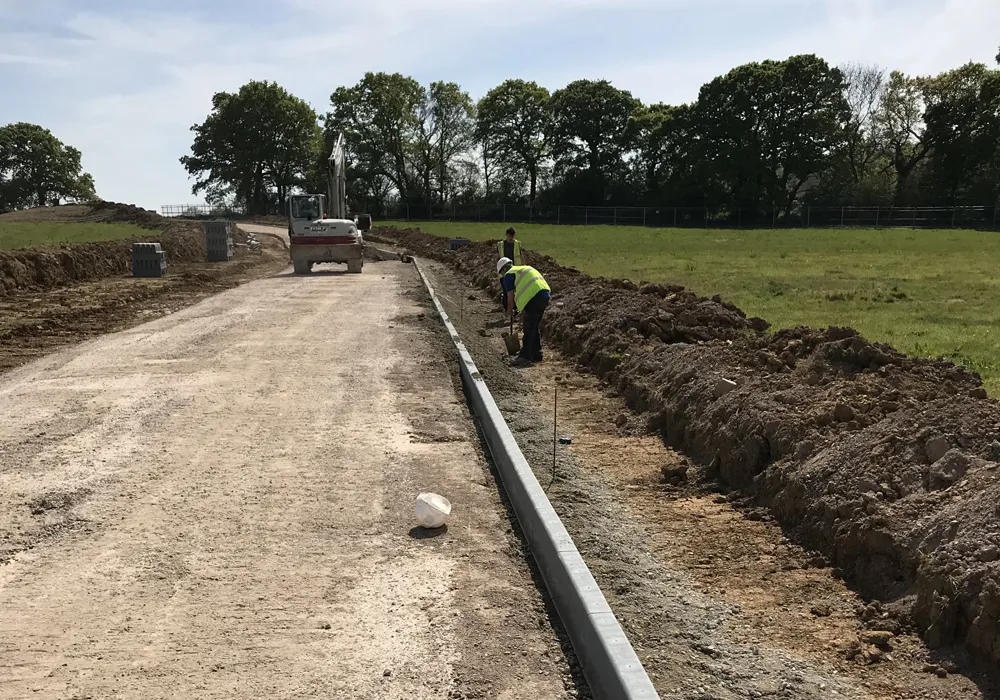
The HAPAS scheme, set up by Highways England, the County Surveyors Society (CCS) and the British Board of Agrément (BBA) provides national approval assessment, testing and certification for products and systems for use on highways and roads. Products that are HAPAS approved have undertaken assessment including laboratory testing, factory audit and site inspections.
The units passed the demanding criteria which mean that Durakerb has been awarded the Certification for Highway Products and Systems. In addition, as part of an ongoing commitment to quality, the product undergoes regular audits that ensure the factory quality control procedures continue to meet the BBA’s requirements.
Certification involves a range of tests, such as compression, slip skid and abrasion resistance. However, the recycled plastic-based kerbs also had to undergo examination to assess the base polymer’s resistance to road salts, petrol, oil and diesel spills all at a range of temperatures that the product would expect to see during its installed lifetime.
Durakerb provides a sustainable alternative to the traditional concrete road kerb as each unit is comprised of 88% recycled polymer.









